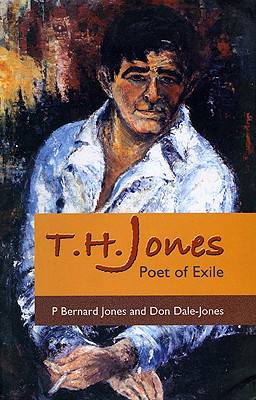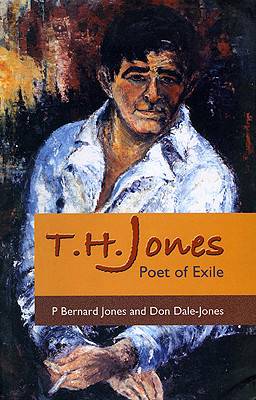
- Afhalen na 1 uur in een winkel met voorraad
- Gratis thuislevering in België vanaf € 30
- Ruim aanbod met 7 miljoen producten
- Afhalen na 1 uur in een winkel met voorraad
- Gratis thuislevering in België vanaf € 30
- Ruim aanbod met 7 miljoen producten
Zoeken
€ 13,95
+ 27 punten
Omschrijving
T.H. Jones (1921-1965) achieved little recognition in Wales or Britain during his lifetime. After publishing his first volume of poetry in 1957, he emigrated to Australia, where his career as a poet and lecturer came to a sadly premature end when he was accidentally drowned. T.H. Jones: Poet of Exile is the first literary biography of an undervalued writer who, the authors suggest, should be thought of as one of the defining poets of mid-twentieth-century Welsh culture, alongside Dylan Thomas and R.S. Thomas. This perceptive study locates Jones in his social and cultural contexts and demonstrates his considerable achievement as a transitional figure in the development of 'Anglo-Welsh' poetry. The authors draw extensively on unpublished sources, such as Jones's extraordinary hand-written 'Black Book' which contains nearly all his poems in chronological order, and on interviews with those closest to Jones. It is a valuable record of a writer important both because of the poetry he wrote and because of what his life has so powerfully to reveal to us about his culture, his period and his place.
Specificaties
Betrokkenen
- Auteur(s):
- Uitgeverij:
Inhoud
- Aantal bladzijden:
- 336
- Taal:
- Engels
- Reeks:
Eigenschappen
- Productcode (EAN):
- 9780708317075
- Verschijningsdatum:
- 21/09/2001
- Uitvoering:
- Paperback
- Formaat:
- Trade paperback (VS)
- Afmetingen:
- 131 mm x 195 mm
- Gewicht:
- 485 g

Alleen bij Standaard Boekhandel
+ 27 punten op je klantenkaart van Standaard Boekhandel
Beoordelingen
We publiceren alleen reviews die voldoen aan de voorwaarden voor reviews. Bekijk onze voorwaarden voor reviews.











